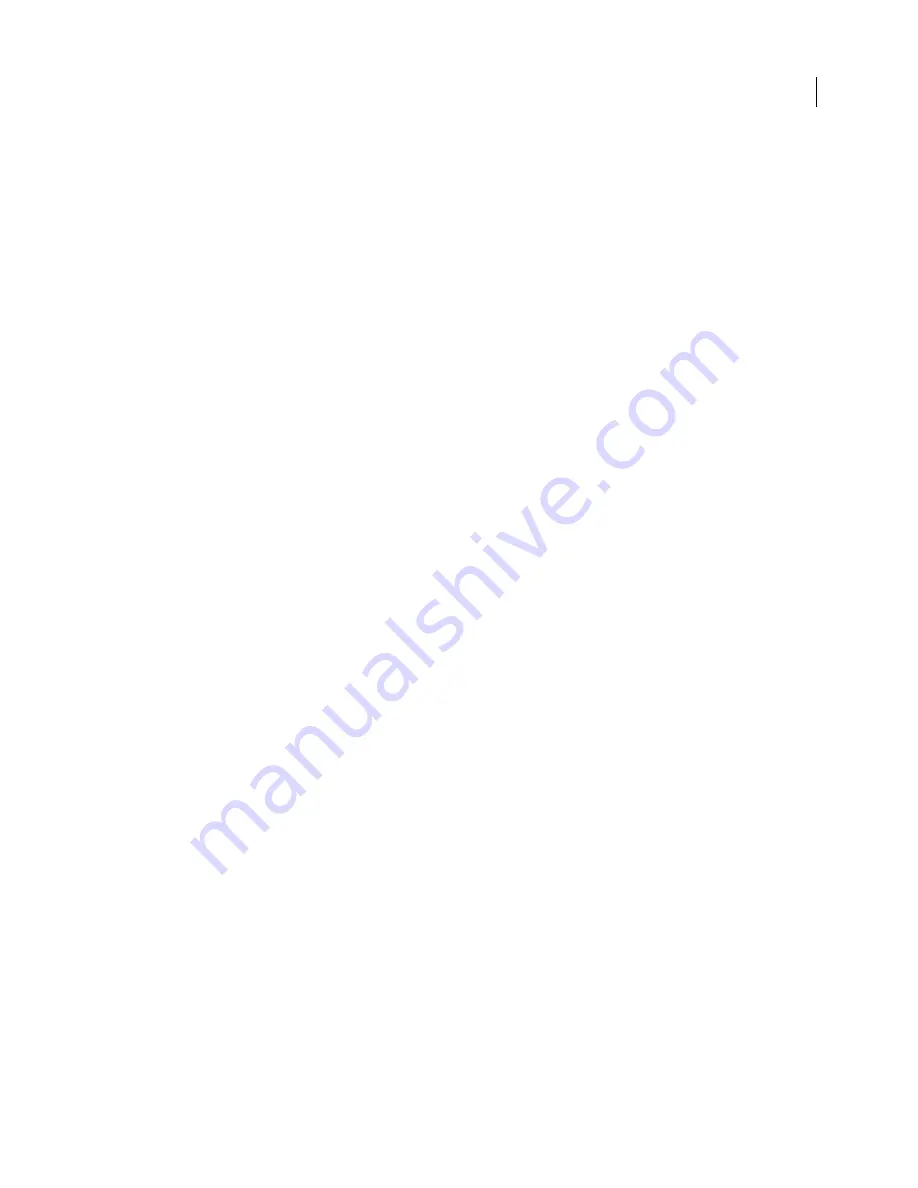
PHOTOSHOP CS3
User Guide
72
Some PDF files contain a single image, and others contain multiple pages and images. When you open a PDF file in
Photoshop, you can choose which pages or images to open and specify rasterization options.
You can also import PDF data using the Place command, the Paste command, and the drag-and-drop feature. The
page or image is placed on a separate layer as a Smart Object.
Note:
The following procedure is only for opening generic PDF files in Photoshop. You don’t need to specify options in
the Import PDF dialog box, when opening Photoshop PDF files.
1
Do one of the following:
•
(Photoshop) Choose File > Open.
•
(Bridge) Select the PDF file and choose File > Open With > Adobe Photoshop CS3. Skip to step 3.
2
In the Open dialog box, select the name of the file, and click Open.
3
Under Select in the Import PDF dialog box, select Pages or Images, depending on what elements of the PDF
document you want to import.
4
Click the thumbnails to select the pages or images you want to open. Shift-click to select more than one page or
image. The number of selected items appears under the preview window. If you’re importing images, skip to step 8.
Note:
Use the Thumbnail Size menu to adjust the thumbnail view in the preview window. The Fit Page option fits one
thumbnail in the preview window. A scroll bar appears if there are multiple items.
5
To give the new document a name, type it in the Name text box. If you’re importing more than one page or image,
multiple documents open with the base name followed by a number.
6
Under Page Options, choose from the Crop To menu to specify what part of the PDF document to include:
Bounding Box
Crops to the smallest rectangular region that includes all the text and graphics of the page. This
option eliminates extraneous white space and any document elements outside the Trim Box.
Note:
Bounding Box will not crop white space that is part of a background created by the source application.
Media Box
Crops to the original size of the page.
Crop Box
Crops to the clipping region (crop margins) of the PDF file.
Bleed Box
Crops to the region specified in the PDF file for accommodating limitations inherent in production
processes such as cutting, folding, and trimming.
Trim Box
Crops to the region specified for the intended finished size of the page.
Art Box
Crops to the region specified in the PDF file for placing the PDF data into another application.
7
Under Image Size, (if necessary) enter values for Width and Height:
•
To preserve the aspect ratio of the pages as they’re scaled to fit within the rectangle defined by the Width and
Height values, select Constrain Proportions.
•
To scale the pages exactly to the Width and Height values, deselect Constrain Proportions. Some distortion might
occur when the pages are scaled.
When more than one page is selected, the Width and Height text boxes display the maximum width and height
values of the selected pages. All pages are rendered at their original size if Constrain Proportions is selected and you
don’t change the Width and Height values. Changing the values will scale all pages proportionately as they're
rasterized.
8
Specify the following options under Image Size:
Resolution
Sets the resolution for the new document. See also “About pixel dimensions and resolution” on page 61.






























